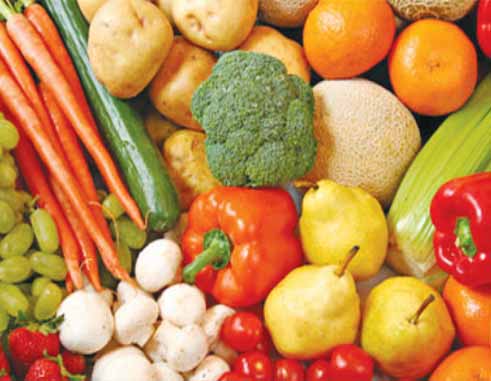FOOD BORNE illnesses are one of the most common public health issues in the Caribbean region, and have increased by 26% since 2010. The fact that thousands of people in the region become sick from tainted food each year demonstrates the need to further safeguard our food supply.
In this regard, the Caribbean Public Health Agency (CARPHA), in collaboration with the Pan American Health Organization (PAHO/WHO), Inter-American Institute for Cooperation on Agriculture (IICA) and the European Union, this week convened a three day Regional Foodborne Diseases Surveillance and Food Safety Workshop at the Trinidad Hilton in Port of Spain. The meeting ended yesterday.
According to Dr. C. James Hospedales, CARPHA Executive Director, the meeting continued to build capacity in integrated “one health” food borne disease surveillance and food safety, as well as multi sectoral collaboration for improving food safety in the Caribbean.” He informed participants that this regional programme which was started in 2005 by the Caribbean Epidemiology Center (CAREC), one of CARPHA’s predecessors, was being continued by the Agency. He also emphasized that food safety was a key factor to the Caribbean tourism dependent economies.
Dr.Hospedales’ remarks were supported by Dr. Theodore-Ghandi. The PAHO/WHO Representative to Trinidad and Tobago congratulated CARPHA on hosting the workshop and stated that PAHO stoood ready to collaborate to strengthen food safety and promote “one health” in the Caribbean.”
In welcoming participants, Dr. Gregg Rawlins, IICA Representative for the Caribbean explained that “this workshop has a significant role to play in improving food safety systems in the Caribbean, which appears to be weak in the areas of legislation, coordination and organizational capacity.” In this regard, experts responsible for foodborne diseases surveillance and food safety, including epidemiologists, laboratory directors and environmental health officers, food safety advisors, chief veterinary officers, will develop national policies and frameworks for reducing foodborne diseases and improving food safety.
In her welcome remarks to participants, Ms. Kathrin Renner, Programme Officer EU Delegation to Trinidad and Tobago informed representatives of the importance of safeguarding the food supply of the Caribbean region. She pointed out that developing food safety standards is more than just regional health, but also has an economic benefit since it increases the Region’s potential to export to the European Union and other international markets.
The Minister of Health for Trinidad and Tobago, Senator the HonorableDr.Fuad Khan in his feature address told participants that he was eager to see a “regional implementation plan for food safety to be able to analyse, investigate and resolve issues as they appear at critical points along the food chain,” and he encouraged the workshop participants to work towards this important goal.
Given the heavy dependency of the Caribbean region on the tourist dollar, the protection of the health and safety of Caribbean visitors, as well as locals involved in tourism, was key to the sustainability and profitability of that sector. Mitigating the impact of foodborne threats to health was also a key component of CARPHA’s Tourism and Health Programme. As such, during the meeting, participants also reviewed regional early warning and response, hotel and cruise ship health surveillance protocols for addressing travel-related foodborne diseases and other public health issues. For this session, representatives from the Ministry of Tourism and regional tourism agencies including the Caribbean Tourism Organisation, the Caribbean Hotel and Tourism Association and the Cruise Line International Agency also participated.
Ensuring the safety of food is a long-standing objective of the Caribbean Pubic Health Agency. Food safety is paramount to promoting food security as well as tourism sustainability, according to Dr Lisa Indar, Coordinator of the Tourism and Health programme and Lead for Foodborne Disease. The Agency continues to provide technical support to the Caribbean region in the areas of surveillance, monitoring, prevention of illness, disability, and death due to foodborne diseases.






![Simón Bolívar - Liberator of the Americas [Photo credit: Venezuelan Embassy]](https://thevoiceslu.com/wp-content/uploads/2025/12/Simon-Bolivar-feat-2-380x250.jpg)



